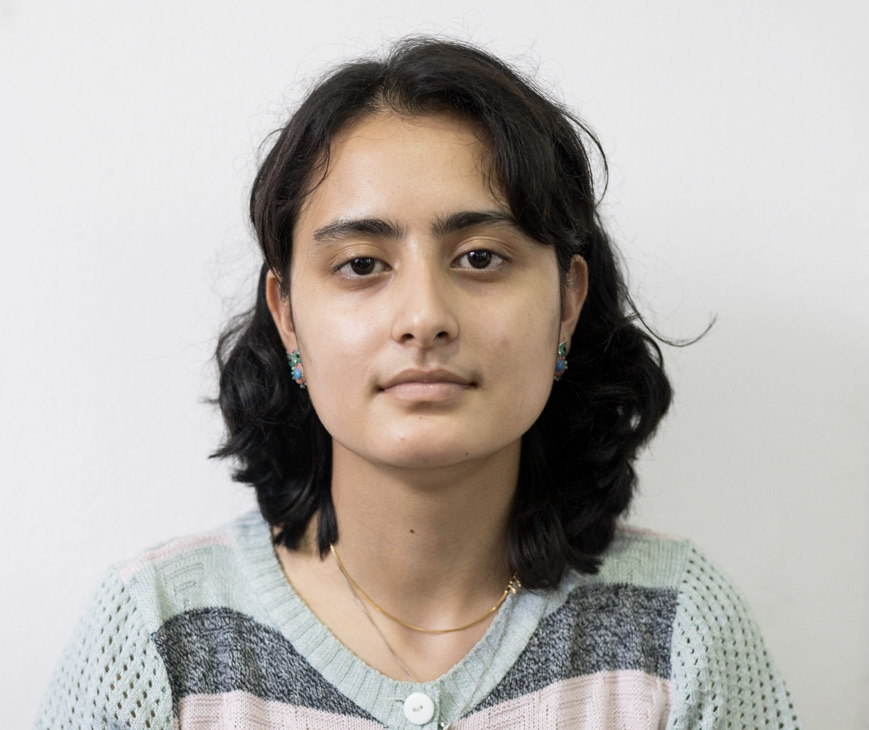Books
Without criticism, literature becomes stagnant
Yug Pathak, a writer, journalist and an overall ‘cynic’ of all things status-quo, talks about how books and knowledge systems help shape our collective psyche.
Urza Acharya
Yug Pathak is many things at once. He’s written both fiction (‘Urgenko Ghoda’) and non-fiction (‘Mangena: Nepal Manthan’) and has even delved into poetry. He is currently working as the editor of Chetlung—a magazine focusing on commentary, discourses and philosophy,
A small sit-down with him will inherently reveal his curious and, at times, cynical side, for his philosophy is based on probing everything and anything that others assume to be normal and unquestionable. For Pathak, words can and should be used to constantly dismantle conventional viewpoints—especially if they come at a cost of subordination and oppression of certain groups.
Here’s what he had to say about the past, present and future of books.
Can you walk us through your reading journey?
Marxism has had a significant influence on my intellectual upbringing. Back home in Jhapa, my parents were inclined toward Marxist politics, so we had books like Maxim Gorky’s ‘Mother’ lying about. Similarly, Parijat is also someone I read while young, and the effect of her prose lingers even today. Other memorable reads from my younger days are Diamond Shumsher’s ‘Basanti’ and Modnath Prasit’s ‘Devasur Sangram.’
As there weren’t that many books or libraries available in my village, I could only read books brought home by my parents or brother. Thankfully, their tastes weren’t too conventional, so I was introduced to alternate and differing viewpoints since childhood.
If we’re talking about what I’m reading right now—it’s complicated. Well, I’m reading so I can write. As I’m working on a book about how Nepal fits into the world system—in terms of politics and economy, I’m catching up on mostly non-fiction books and journals that paint a clearer picture of where the world is heading.
What are some literature from the Marxist school that have influenced you?
I left Jhapa and moved to Chitwan after I passed the civil service exam. This was during the peak of the Maoist revolution. Ironically, though I made my living for the government, my ideology matched more with the revolutionaries!
I used to write poems—ones that staunchly criticised the political fiasco of the times—and recite them at events. It was here that I decided to read up on texts by Karl Marx, Friedrich Engles, and Antonio Gramsci, which brought me closer to the movement, and I was convinced that the emerging party could bring about positive change.
Eventually, I left my government job and went to Kathmandu to study English. It was here—amidst the books in Tribhuvan Univeristy’s central library—that I realised how archaic my view—and the Maoist leaders’ view of communism—actually was. Even though the Soviet Union had collapsed and several critiques of traditional communism had already arisen, the party leaders were still spewing the old, raw and primitive version of communism. Moreover, their resistance towards any critique or evolution in theories eventually disenchanted me from their politics.
Thanks to books, I was introduced to a wide range of ideas—from Plato’s rhetoric to theories on post-modernism that helped widen my perspective. That is also when I learned the dangers of ideological systems, as they can act as a powerful tool through which politicians and the elite can manipulate the masses into surrendering their freedom.
Why do you think people are so resistant to new ideas? Can books facilitate a transition to fresher perspectives?
I’ve realised that people can be parasites—sometimes, it’s intrinsic, while other times, it’s manufactured. Systems—from religion and institution to ideology—give people power and a space to perform and exercise their dominance. Think about it, politicians love to sympathise with the poor in their gaudy speeches but rarely bat an eye on the people protesting at Maitighar.
It becomes especially dangerous when an individual’s entire personality is based on ideological systems, and they are completely blinded by their beliefs to the point where they refuse to hear other viewpoints.
This rings true even with writers, who are eventually a product of society. Most of the books published are incredibly myopic; they uphold the belief systems of that time, rarely attempting to tread new boundaries. New ideas are rejected not just by established writers but also by publishing houses, trapping everyone in a vicious circle.
However, it is once again books—ones that manage to find patrons willing to stir the status quo—that change the course of history. The book ‘The Half That Has Never Been Told’ is an example. Books on capitalism always brag about the free market, competition and innovation. However, what writer Edward Baptist did in 2014 was prove that the foundation for capitalism was built on the blood, sweat and tears of slaves during colonial times. His book talks about how the banks in Manchester, England, flourished because of the profits made by white owners of cotton plantations in the US.
Writers often publish books that showcase a sanitised version of history—gatekeeping aspects that don’t fit their narrative. But then again, writers in the present have begun to dismantle these well-established notions, mainly with the help of the post-colonial and reorientation paradigm.
Books offer the best of both worlds. It’s not the pages but what’s written in them that helps shape our world.
How do writers help shape the public psyche with their books?
Fiction, in particular, is a very influential tool. Though people know they are just reading a story—the characters and plotlines end up shaping their worldview. I think the first place this phenomenon manifests is through the stereotypical depictions of the characters. If writers wish to show that women face a lot of oppression in society, they portray their female characters as helpless and without agency. Yes, to a certain extent, it does portray reality, but it does nothing to improve women’s condition.
In my first novel ‘Urgenko Ghoda,’ my main protagonist is Mhendo, a young Tamang Maoist fighter. She is strong, headfast, and deeply passionate about the movement. A person once came up to me and told me that Mhendo wasn’t Tamang enough. Just because she wasn’t doing typical things associated with Tamang culture doesn’t mean she is any less Tamang. Moreover, as someone fighting for a cause—while actively hiding from the army—she clearly wouldn’t have time to become fully entrenched in her ‘culture.’
This is where writers falter. They stick to what they think should be written. We write books with grave details about how Nepali migrants are exploited overseas, but we rarely give solutions or find ways to dismantle that narrative. The characters’ actions are limited by their surroundings, devoid of free will or resistance.
When we read a book, we must recognise the writers’ biases. Why is this character written in such a way? What preconceived notions are behind their descriptions? That’s where the role of criticism comes in. It’s important to look at everything with a little bit of scepticism.
In the age of an attention economy, will books be able to compete with social media?
Books are the very core of humanity. They may change form, and perhaps books too will become entirely electronic. But we need to realise that—historically as well as in the present—writing has been an interest of a small group of people. Not everyone can write—it’s a mix of interest and luxury.
And when it comes to books competing with social media, a 250-word jargon on Twitter—no matter how put together—will never be able to compete with the dedication, research and effort it takes to write a book. I mean, even analysis and discourse about new media take place with the help of books written by scholars and media theorists! Take a look at Shoshana Zuboff’s book ‘The Age of Surveillance Capitalism.’ It is a poignant book about the changes brought about by digital technology, and there is no way she could’ve said all this through her social media.
I guess I’m not too worried about social media or the Internet taking over. Knowledge systems like books and cinema will remain because they are too powerful and too influential to be cut off.
Yug Pathak’s book recommendations
Thatched Huts and Stucco Palaces
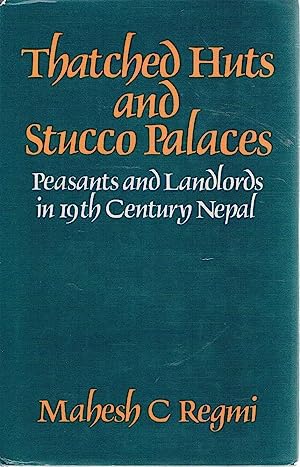
Author: MC Regmi
Year: 1978
Publisher: Vikas
A brilliant study of 19th-century Nepali economic history—relating to peasants and landlords. It walks us through a historical path so we can think and reimagine the political and economic scenario in front of us today.
Capital and Ideology
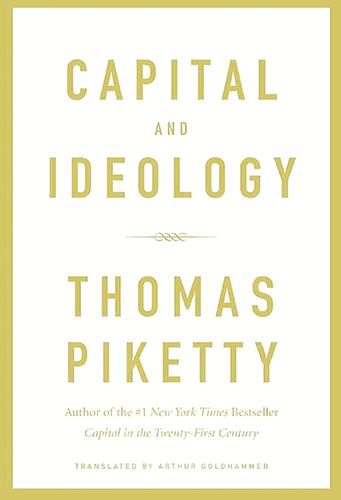
Author: Thomas Piketty
Year: 2019
Publisher: Harvard University Press
While the so-called mainstream economic thinking is obsessed with numbers and graphs, this book visualises the role of the ideology behind numbers and graphs.
The Dawn of Everything
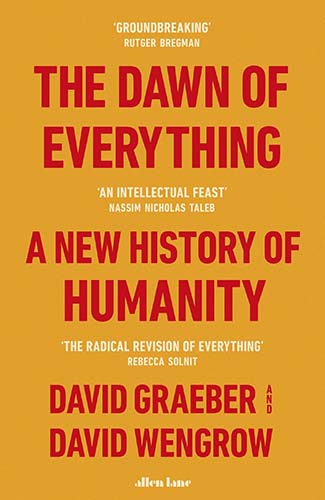
Author: David Graeber and David Wengrow
Year: 2021
Publisher: Allen Lane
A well-researched and neatly crafted narrative that challenges the dominant narrative of civilisational history and shakes the foundation of what we consider absolute.
The Anarchy
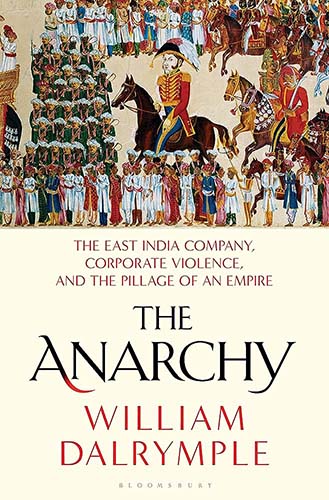
Author: William Dalrymple
Year: 2019
Publisher: Bloomsbury Publishing
A refreshing take on the history of the East India Company that colonised and ruled India for a hundred years. Dalrymple emphasises the characteristics of corporate power throughout colonial history, the effects of which are visible even today.
The Half Has Never Been Told
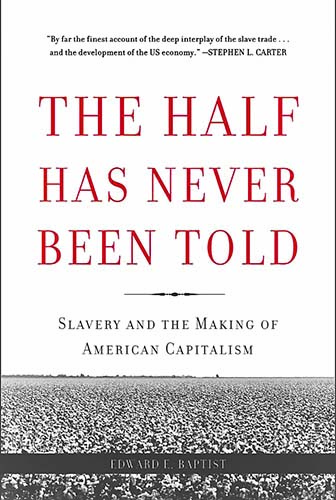
Author: Edward Baptist
Year: 2014
Publisher: Basic Books
This book has turned the prevailing narrative of American capitalism upside-down and opened a new window to see world history with fresh eyes. How obvious facts are stripped from history books is intriguing to ponder about.
In the Name of Development
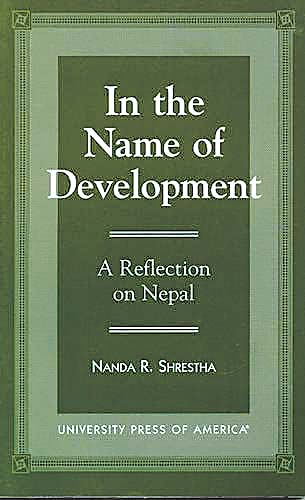
Author: Nanda R Shrestha
Year: 1997
Publisher: Educational Publishing House
In this book, Shrestha gives us lucid stories of development projects that ultimately have destroyed people’s lives. He delves into instances where indigenous knowledge forms were abandoned as people became mesmerised by development according to Western ideals.




 13.25°C Kathmandu
13.25°C Kathmandu